Fatmagül'ün Suçu Ne?
Fatmagül'ün Suçu Ne? (transl. What is Fatmagül's fault?) is a Turkish television drama series produced by Ay Yapım and broadcast on Kanal D. The series is based on Vedat Türkali's scenario,[1] Fatmagül'ün Suçu Ne?, which was made into a film in 1986, Hülya Avşar as Fatmagül.[2] The series is written by the duo Ece Yörenç and Melek Gençoğlu. The soundtrack was composed and conducted by Toygar Işıklı.[3]
| Fatmagül'ün Suçu Ne? | |
|---|---|
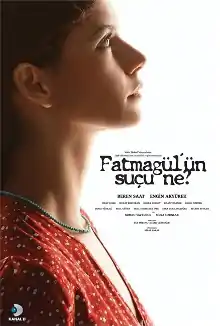 | |
| Created by | Vedat Türkali |
| Written by | Ece Yörenç Melek Gençoğlu |
| Directed by | Hilal Saral |
| Starring | Beren Saat Engin Akyürek Fırat Çelik Musa Uzunlar Murat Daltaban Buğra Gülsoy Engin Öztürk Kaan Taşaner |
| Composer | Toygar Işıklı |
| Country of origin | Turkey |
| Original language | Turkish |
| No. of seasons | 2 |
| No. of episodes | 80 |
| Production | |
| Running time | 90 min |
| Production company | Ay Yapım |
| Release | |
| Original network | Kanal D |
| Original release | 16 September 2010 – 21 June 2012 |
| Chronology | |
| Related shows | Kya Qusoor Hai Amala Ka? |
Plot
Fatmagül Ketenci (Beren Saat) is a lower-class dairy-farm girl who lives in the village Ildır on the Aegean coast belonging to the administrative district of Çeşme, in Izmir province, with her too simple brother Rahmi (Bülent Seyran), his son and his wife Mukaddes (Esra Dermancıoğlu) who hates her for no reason. Fatmagül plans to marry her childhood love Mustafa (Fırat Çelik), who is a fisherman. They are only waiting for Mustafa to earn much money to finish their house construction before marriage. Then there is the Yaşaran family, the rich upper-class businessmen and their political social elites. Yaşaran Family is in Izmir for the engagement ceremony of the son of the elder brother Reşat Yaşaran (Musa Uzunlar) to the daughter of a politician. Selim (Engin Öztürk) is his son and Erdoğan (Kaan Taşaner) his nephew. These cousins have a third friend Vural (Buğra Gülsoy) who also belongs to the upper-class. All these three have spent their childhood in Izmir but as the businesses of their fathers grew, they moved to Istanbul. They have a childhood friend in Izmir, whom they meet on yearly basis when they come there for summer vacations. This fourth friend of theirs is the hero - Kerim Ilgaz (Engin Akyürek).
Kerim Ilgaz is a well-mannered boy, a blacksmith apprentice by profession, who lives with his aunt Meryem Aksoy (Sumru Yavrucuk), known affectionately as "Ebe Nine", who is a homeopath. Kerim was orphaned during childhood so Meryem brought him up as her own son. He works as a carpenter in the workshop of his father's friend. Kerim though unlike his rich friends, is over-powered by their presence. He considers himself important with them and hence, enjoys their company.
Fatmagül is desperate to be married-off to Mustafa, not only because she loves him but also to get rid away from her nagging sister-in-law. Her desire for Mustafa and an independent married life is growing with time as Mukaddes's hatred is growing towards her. Except for Mustafa, she has no one to share her feelings with. While in Izmir, Erdoğan, Selim, Vural and Kerim see Fatmagül and the three rich men ogle and tease her. Kerim doesn't like this. Then at Selim's engagement, Kerim comes face-to-face with her as she is working there with her sister-in-law.
The big event of the season is the engagement of Selim, to the politician Turaner Alagöz's (Aziz Sarvan) daughter Meltem (Seda Güven). Kerim after attending Selim's engagement, joins his friends for an after-party. All four go for drinking and drug binge near the sea. Mustafa is leaving for a night fish-catch. Fatmagül is coming to see him off. She passes from the area where the drunk boys are singing. Kerim sees her and on recognizing her shouts to his friends 'Guys! It's the same girl'!! Then when she tries to run, Kerim gets hold of her while the other three come near her.
The tragedy occurs. Fatmagül is gang-raped. The four boys are shown to be involved in the crime as she faints when Kerim comes on her. The next morning, a traumatized Fatmagül is discovered by Ebe Nine while she is picking herbs. The four boys have already left the crime scene. Kerim drops off Selim and Erdoğan at their place and himself goes with Vural to his house. Kerim is left deeply disturbed by the event and is even more distressed to know that the girl has been rescued by his mother. The rich boys are confident in the power of their rich fathers and are sure to be saved. As Mukaddes approaches the Yaşarans threatening of giving their name to the police (as she had found Selim's engagement ring at the rape-scene), with the course of events, the Yaşarans save their sons and forcefully marry Kerim to Fatmagül. Kerim accepts the blame of solely raping Fatmagül for protecting his friends and also because he believes himself to be guilty. Mukaddes is their accomplice in all this. Mustafa is hurt primarily because of his fiance being raped. He burns their half-finished house in front of Fatmagül because he believes Yaşaran's false stories that Fatmagül has been having an affair with Kerim from the beginning. Fatmagül and Kerim's families sell their properties and move to İstanbul to start a new life.
The story develops in Istanbul. Fatmagül hates Kerim. She insults him, abuses him, spits at him, tries to kill him, etc. Kerim is not sure whether he really raped her, as he was drunk and drugged. But Fatmagül believes that he did it as his was the last face she saw before fainting. Then Vural who is having little traumas of guilt, tells Kerim what he knows that; Kerim did not rape Fatmagül. In fact, when she laid there and fainted, he just sat beside her. Kerim tells this to Fatmagül. She believes it but it is of no importance for her as she hates him and considers him as much as culprit as the other three.
Things become complicated due to the exploitations of the Yaşarans and their unscrupulous lawyer, Münir Telci (Murat Daltaban), who wants to protect them, as well as Mustafa, who seeks revenge on Kerim. As a result, both the Yaşarans and Mustafa start harassing Kerim, Fatmagül and their relatives. Kerim, realizing his presence causes Fatmagül a lot of pain, prepares to leave and divorce her as she desires. Just before he leaves, Kerim realizes that he loves Fatmagül, and that it was love at first sight. He writes a letter to her, telling her to move on in her life and that one day he will come and ask for forgiveness from her.
Fatmagül reads this letter. Later-on the viewers are shown that this was the moment when Fatmagül fell in love with Kerim as his words softened her heart for him and she believed him. Kerim returns and Fatmagül gradually begins to trust him more.
One day, Vural overhears Erdoğan's plan to get rid of Mustafa and Kerim forever. He requests a meeting with Kerim to warn him. Fatmagül, on a passing bus, sees Vural hug Kerim goodbye and her trust in Kerim dissolves. She believes he is still conspiring with her rapists. In order to prove his innocence and love for her, Kerim files her rape case and asks the police to arrest him, Vural and the Yaşarans, after which Fatmagül finally accepts his of being honest with her. Mustafa finds out the truth and asks Fatmagül to forgive him, but she rejects him. The Yaşarans bribe Mustafa to not divulge the truth to the police and he becomes a greedy co-conspirator in the Yaşarans' attempts to obstruct justice. During the first trial, the Yaşarans falsify their testimonies. They also resort to using several bribed witnesses. Vural then is accidentally killed by Mustafa.
In the second season, Fatmagül also confesses her love for Kerim. After the Yaşarans forcefully protect Mustafa against Fatmagül, he abducts her, stating he loves her more than Kerim and that he regrets leaving her. Kerim eventually rescues his wife and they escape. Mustafa is arrested and imprisoned for his crimes. At the wedding of Kerim and Fatmagül, Mustafa intentionally tries to escape from police custody and is therefore, shot to death. Meanwhile, Selim and Erdoğan surreptitiously move to Malta where they briefly hide from the authorities. However, they are extradited to Istanbul after Erdoğan engages in a fight at a nightclub and is arrested.
Eventually, Fatmagül confronts them in court and they are charged for their part in her rape, essentially bringing down the Yaşaran empire. The series ends with Fatmagül and Kerim expecting their first child. In the final scene, they walk down the street in Izmir holding hands, expressing that their love cannot be shaken despite the difficult challenges they faced and that when a woman is strong like Fatmagül and has the support of a strong husband like Kerim, even a crime like 'rape' cannot escape justice.
Characters
| Role | Actor | Character |
|---|---|---|
| Fatmagül Ilgaz (née Ketenci) | Beren Saat | A beautiful and naive village girl who was raped by Erdoğan, Selim, and Vural. Was engaged to Mustafa. In order to save the honour of her family she is forced to marry Kerim. Later falls in love with him. |
| Kerim Ilgaz | Engin Akyürek | A blacksmith who falls in love with Fatmagül at first sight. Erdoğan, Selim, and Vural friend. He was present during the incident and was later forced by Yaşaran's family to take the blame for her rape. He marries Fatmagül to protect her. Later supports her in the fight against her rapists. |
| Mustafa Nalçalı | Fırat Çelik | Halide and Emin's son.
Fatmagül first love. After the rape he breaks off their engagement but can't forget Fatmagül. Worked and blackmailed Yaşaran's. Swore to take revenge on the rapists and Kerim. He accidentally kills Vural following a confrontation. Shoots Kerim. Had an affair with Meltem Alagöz. Later marries Hacre Ovacık (Asu) but never loves her. After Fatmagül and Kerim wedding he commits suicide by running away from the police man who shot him. |
| Erdoğan Yaşaran | Kaan Taşaner | Nephew of the wealthy businessman, Reşat Yaşaran. Jealous of Selim, hates his uncle Reşat but secretly wants to be like him. Raped Fatmagül later persecuted and threatened her. Blackmailed Mustafa and led to suicide Turaner Alagöz. |
| Selim Yaşaran | Engin Öztürk | Son of Reşat Yaşaran. Meltem Alagöz ex- husband. Also took part in Fatmagül's rape. |
| Vural Namlı | Buğra Gülsoy | Kerim's friend. Also took part in Fatmagül's rape. After the rape he regrets his actions and is left with a scattered psyche. Later he wants to confess and even apologized to Fatmagül, but Yaşaran's pressurize him to keep quiet.He was accidentally killed by Mustafa. |
| Reşat Yaşaran | Musa Uzunlar | Selim's father, Erdoğan's uncle, and Rıfat's brother. He is a wealthy businessman who tries to cover his family's crimes, including the rape of Fatmagül. Blackmailed Mustafa and led to suicide Turaner Alagöz. Suffers a stroke late in the series due to stress. |
| Meryem Aksoy | Sumru Yavrucuk | Kerim's adoptive mother who raised him. Affectionately known as "Ebe Nine" ("Granny Ebe"). |
| Münir Telci | Murat Daltaban | Selim's maternal uncle and is also the Yasaran's family lawyer. Forced Fatmagül to marry Kerim, blackmailed Mustafa. |
| Asu(de) / Hacer Ovacık / Hacer Nalçalı | Sevtap Özaltun | Previously worked as a prostitute. Madly in love with Mustafa. Even after she learned all his crimes
she still marries him. Later, heartbroken she told everything to Fatmagül and the police. Gives birth to Mustafa child Murat. |
| Meltem Alagöz/ Yaşaran | Seda Guven | Selim's ex-wife. After learning of her husband's actions, she divorces him and becomes an ally to Fatmagül. Had an affair with Mustafa. |
| Galip | Salih Zeki Yorulmaz | Kerim's blacksmith teacher. Dies in a car accident. Fahrettin Ilgaz friend. |
| Perihan Yaşaran / Telci | Deniz Türkali | Selim's mother, Reşat's wife, Münir's sister. Later turns on her husband after learning of his attempts to cover up crimes committed by Selim and Erdoğan Yaşaran. |
| Kadir Pakalın | Civan Canova | Fatmagül's lawyer. A lawyer and a father-figure to Kerim. Eventually falls in love and marries Meryem Aksoy. |
| Mukaddes Ketenci | Esra Dermancıoğlu | Rahmi's wife and Fatmagül's sister-in-law. Used to scheme against Fatmagül and the whole family. |
| Rahmi Ketenci | Bülent Seyran | Fatmagül's brother and Mukaddes' husband. |
| Ender Alagöz | Veda Yurtsever İpek | Meltem's mother. |
| Turaner Alagöz | Aziz Sarvan | Meltem's father. Commits suicide by Yaşaran's fault. |
| Rıfat Yaşaran | Mehmet Uslu | Erdoğan's father. Dies from a heart attack. His son blames Reşat Yaşaran for his death. |
| Leman Namlı | Servet Pandur | Vural's mother. After her son and her husband die, she commits suicide. |
| Şemsi Namlı | Zühtü Erkan | Vural's father. Dies in a car accident. |
| Halide Nalçalı | Sacide Taşaner | Mustafa's mother. Convince Mustafa to leave Fatmagül after the rape but later regrets it. Dies of illness. |
| Emin Nalçalı | Toygun Ateş | Mustafa's father. Dies of a heart attack. |
| Hilmiye Yaşaran | Deniz Baytaş | Erdoğan's mother. |
| Sami Khaner | Alper Saylik | A taxi driver and Asu's pimp, though later becomes her friend. He eventually falls in love with her. |
| Ömer Akari | Alper Kut | Kerim's lawyer and Kadir's friend. |
| Emre | Emre Yetim | Kerim's and Fatmagül's friend. Had a crush on Asu, later on Deniz. |
| Fahrettin Ilgaz | Serdar Gökhan | Kerim and Deniz father who lives in Australia. Comes back to Istanbul to help Kerim and Fatmagül. |
| Deniz Ilgaz | Gözde Kocaoğlu | Kerim's half-Turkish, half-Australian sister. |
| Gaye | Nilay Kaya | Meltem's cousin, Erdoğan and Münir's love interest. |
| Kristen Norton | Clare Frost | An Englishwoman and Kerim's ex-fling. |
| Murat Ketenci | Ata Yılmaz Önal | Mukaddes' son; Rahmi's adaptive son. |
| Salih Mercanli | Ali Yigit | Murat's biological father. |
| Dr. Nil Yörgen | Bengü Ergin | Erdoğan's love interest. Later becomes an ally to Fatmagül. |
Series overview
| Season | Number of episodes | Episodes | Season premiere | Season finale | Time of broadcasting (EET) | TV season | TV channel |
|---|---|---|---|---|---|---|---|
| 1 | 39 | 1-39 | 16 September 2010 | 16 June 2011 | 20:00 | 2010-2011 | Kanal D |
| 2 | 41 | 40-80 | 8 September 2011 | 21 June 2012 | 21:00 | 2011-2012 | Kanal D |
International broadcasts
Fatmagül gained a lot of popularity in Turkey, Bangladesh, Pakistan, Azerbaijan, Iran, and the Arabic countries. It also dubbed in many languages notably Persian.
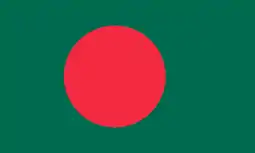 Bangladesh on Deepto TV with the title ফাতমাগুল (Fatmagul)
Bangladesh on Deepto TV with the title ফাতমাগুল (Fatmagul)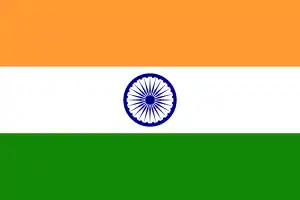 India on Zee Zindagi with the title of Fatmagul
India on Zee Zindagi with the title of Fatmagul 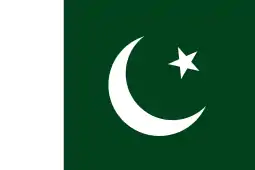 Pakistan on Urdu 1 with the title of فاطمہ گل - آخر میرا قصور کیا؟ (Fatma gul - After all what is my fault?)
Pakistan on Urdu 1 with the title of فاطمہ گل - آخر میرا قصور کیا؟ (Fatma gul - After all what is my fault?) Albania on Albanian Screen with the title Fatmagyl
Albania on Albanian Screen with the title Fatmagyl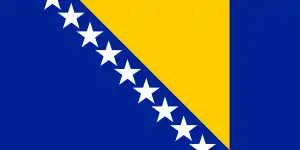 Bosnia on BHT1 with the title Izgubljena čast
Bosnia on BHT1 with the title Izgubljena čast Israel on Viva with the title פטמגול (Fatmagul)
Israel on Viva with the title פטמגול (Fatmagul)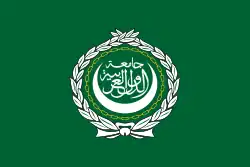 Arab World on MBC1 With the title فاطمة (Fatma)
Arab World on MBC1 With the title فاطمة (Fatma)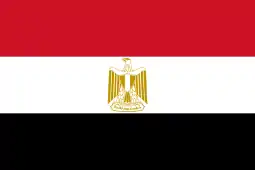 Egypt \
Egypt \  Arab World on CBC with the title فاطمة (Fatma)
Arab World on CBC with the title فاطمة (Fatma)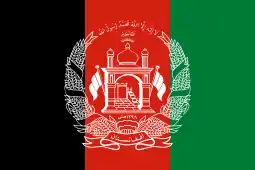 Afghanistan on Tolo TV with the title Fatima Gul
Afghanistan on Tolo TV with the title Fatima Gul Bulgaria on BTV, BTV Lady with the title Пепел от рози (in English: Ashes of Roses)
Bulgaria on BTV, BTV Lady with the title Пепел от рози (in English: Ashes of Roses) Croatia on Nova TV with the title Izgubljena čast (Lost Honor)
Croatia on Nova TV with the title Izgubljena čast (Lost Honor) Serbia on Prva TV with the title Izgubljena čast (Lost Honor)
Serbia on Prva TV with the title Izgubljena čast (Lost Honor)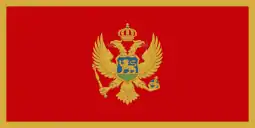 Montenegro on TV Vijesti with the title Izgubljena čast (Lost Honor)
Montenegro on TV Vijesti with the title Izgubljena čast (Lost Honor) France on TV5Monde with the title Fatmagul
France on TV5Monde with the title Fatmagul Georgia on Imedi TV with the title უდანაშაულო
Georgia on Imedi TV with the title უდანაშაულო Greece on Mega Channel with the title Fatmagul
Greece on Mega Channel with the title Fatmagul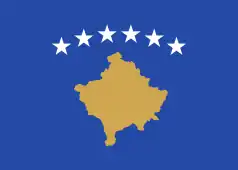 Kosovo on RTV21 with the title Fatmagyl
Kosovo on RTV21 with the title Fatmagyl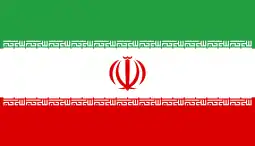 Iran on GEM/River with the title فاطماگل
Iran on GEM/River with the title فاطماگل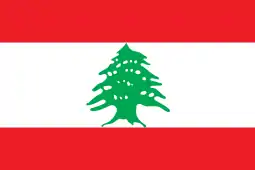 Lebanon on LBCI with the title Fatma
Lebanon on LBCI with the title Fatma Spain on Nova with the title Fatmagul
Spain on Nova with the title Fatmagul Russia on STS "Без вины виноватая" (Guilty Without Guilt)
Russia on STS "Без вины виноватая" (Guilty Without Guilt) England on Turkish Dramas with the title "What is Fatmagul's Fault?"
England on Turkish Dramas with the title "What is Fatmagul's Fault?" Indonesia on VISION 2 DRAMA INDOVISION with the title Fatmagul
Indonesia on VISION 2 DRAMA INDOVISION with the title Fatmagul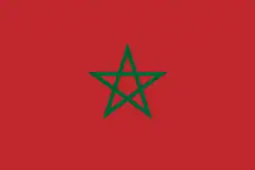 Morocco on medi 1 With the title فاطمة (Fatma)
Morocco on medi 1 With the title فاطمة (Fatma) Macedonia on Sitel TV with the title Судбината на Фатмаѓул (Fatmagul destiny)
Macedonia on Sitel TV with the title Судбината на Фатмаѓул (Fatmagul destiny) Estonia on Kanal 2 with the title Süütu süüdlane (Innocent Culprit)
Estonia on Kanal 2 with the title Süütu süüdlane (Innocent Culprit) Ukraine on 1+1 "У чому вина Фатмагюль?" (Where is Fatmagul fault?)
Ukraine on 1+1 "У чому вина Фатмагюль?" (Where is Fatmagul fault?) Slovakia on TV Doma with the title Fatmagul
Slovakia on TV Doma with the title Fatmagul Lithuania on LNK with the title Be kaltės kalta (Guilty Without Guilt)
Lithuania on LNK with the title Be kaltės kalta (Guilty Without Guilt) Chile on Mega with the title ¿Qué culpa tiene Fatmagül? (What is Fatmagul's Fault?)
Chile on Mega with the title ¿Qué culpa tiene Fatmagül? (What is Fatmagul's Fault?) Slovenia on Planet TV with the title Fatmagul
Slovenia on Planet TV with the title Fatmagul Peru on Frecuencia Latina with the title ¿Qué culpa tiene Fatmagül? (What is Fatmagul's Fault?)
Peru on Frecuencia Latina with the title ¿Qué culpa tiene Fatmagül? (What is Fatmagul's Fault?) Czech on Prima Love with the title Krásná fatmagul (Beautiful Fatmagul)
Czech on Prima Love with the title Krásná fatmagul (Beautiful Fatmagul) Brazil on Rede Bandeirantes with the title Fatmagül - A Força do Amor
Brazil on Rede Bandeirantes with the title Fatmagül - A Força do Amor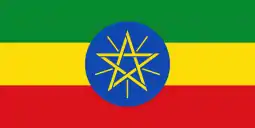 Ethiopia on Kana TV with the title ቅጣት
Ethiopia on Kana TV with the title ቅጣት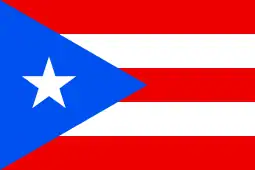 Puerto Rico on WAPA-TV and Telemundo PR with the title ¿Qué culpa tiene Fatmagül? (What is Fatmagul's Fault?)
Puerto Rico on WAPA-TV and Telemundo PR with the title ¿Qué culpa tiene Fatmagül? (What is Fatmagul's Fault?) Romania on Kanal D with the title Fatmagül
Romania on Kanal D with the title Fatmagül
Reception
Iran and Afghanistan
Turkish television drama is extremely popular in Iran, where they are dubbed into Persian. The song roozhaye tanhaei by Iranian singer Ava Bahram has been prepared and performed for the title track of the series Fatmagul.
Among the most popular series are Fatmagul, Aşk-ı Memnu and Ezel.[4]
The most popular Turkish show is Fatmagül'ün Suçu Ne?.[5] Another series as Öyle Bir Geçer Zaman Ki (As Time Goes By), Beni Affet (Forgive Me), Effet, Aşk-ı Memnu (Forbidden Love), and Adını Feriha Koydum are popular too.
Balkans and Southeastern Europe
In Kosovo, the most popular TV shows in December 2012 were Fatmagül'ün Suçu Ne? (What is Fatmagül's Fault?), which ranked top of all programmes and Aşk ve Ceza (Love and Punishment), which came in third according to data by Index Kosova. In Serbia, research from January 2013 indicates that the top two Turkish shows in TV were Muhteşem Yüzyıl, which ranked fourth, and Öyle Bir Geçer Zaman Ki (As Time Goes By), which came in seventh.[6] Fatmagul was one of the most popular shows in Macedonia which irked the government to passed a bill to restrict broadcasts of Turkish series during the day and at prime time in order to reduce the Turkish impact on Macedonian society.[7]
Bangladesh
The Bangla dubbed version of Fatmagul started on Deepto TV from 2 June 2019 , Saturday to Friday, on 6:30pm and 9:30pm. Deepto TV broadcast the finale of the hit Bangla-dubbed series which aired at 6pm and 9:30pm on Monday, 23 December 2019. This series became one of the most popular Turkish series in Bangladesh. [8] [9] [10]
Ethiopia
Fatmagül'ün Suçu Ne? was well received by Ethiopians due to the popularity of other Turkish dramas that had been previously shown in Ethiopia.[11] Fatmagül'ün Suçu Ne? was dubbed in Amharic with title "ቅጣት" or "kitat" and aired on Kana TV.
Pakistan
Fatmagül'ün Suçu Ne? was the second most popular Turkish series in Pakistan which was ranked top in 2013 above Pakistani shows like Zindagi Gulzar Hai, Kankar and Aunn Zara.[12] The series averaged 16% TV ratings with the viewership above 25 million in Pakistani urban and rural market.[13] Aşk-ı Memnu, was the highest rated Turkish series which broke all records in 2012.[14][15][16]
Arab world
In 2013, the most popular Turkish shows worldwide were Fatmagül'ün Suçu Ne?, Aşk-ı Memnu and Muhteşem Yüzyıl.[17][18] Fatmagül'ün Suçu Ne? has increased the popularity of Istanbul as a tourist destination among Arabs.[19] With Aşk-ı Memnu's popularity Beren Saat became the female sensation in Arab television which led to a generally higher viewership for Fatmagul.
International remake
- In India the show has been remade by Indian TV channel Star Plus in Hindi under the title of Kya Qusoor Hai Amala Ka?. This is the first official remake of the series. The show aired from 3 April 2017 during the noon slot.[21][22] The show features Pankhuri Awasthy as Amala (Fatmagul), Anant Joshi as Dev (Mustafa) and Rajveer Singh as Abeer (Kerim).[21] The original show titled Fatmagul first aired on Zindagi TV and became a rating success and thus the remake was commissioned.[23][22]
- A Spanish remake called Alba is currently in production.[24] The show stars Elena Rivera as Alba (Fatmagul) and is set to be released in 2021 on streaming platform Atresplayer Premium.
References
- "Beren iyi ama ille de Hülya - Radikal 2 Haberleri". Radikal. 24 October 2010. Retrieved 15 January 2017.
- Vedat Türkali Bugünleri Daha Önceden Görseydi, Fatmagül'ün Dramını Yazar mıydı?, Milliyet
- http://indianexpress.com/article/entertainment/television/turkish-drama-fatmagul-indian-remake-kya-kasoor-hai-amla-ka-star-plus-4546638/
- "Iranian officials failing to stop of Turkish TV series". Hurriyetdailynews. Retrieved 16 September 2015.
- "Beren Saat Afgan Kadınlarını Uyarıyor". Dizisifilm. Archived from the original on 26 September 2015. Retrieved 15 September 2015.
- "Turks bewitch the Balkans with their addictive soaps". Balkan Insights. Retrieved 3 May 2013.
- "Macedonia bans Turkish soap operas". Hurriyet Daily News. Retrieved 15 January 2013.
- https://www.dhakatribune.com/showtime/2019/06/01/fatmagul-and-sultan-suleiman-to-start-from-june-2
- https://www.dhakatribune.com/showtime/2019/09/09/deepto-tv-to-air-100th-episode-of-fatmagul-on-monday
- https://www.dhakatribune.com/showtime/2019/12/22/fatmagul-comes-to-an-end
- "Ethiopia takes delight in watching Turkish drama series". DailySabah. Retrieved 20 March 2017.
- "It's fun to be young: Top Six Turkish Dramas (dubbed in Urdu)". Gonnabecrazyforyou.blogspot.com. 10 January 2014. Retrieved 15 January 2017.
- "Television Viewership Overview 2013" (PDF). Medialogic.com.pk. Retrieved 15 January 2017.
- "Internacional". Lavanguardia.com. 14 October 2015. Retrieved 15 January 2017.
- Michael Kimmelman (17 June 2010). "Soap Operas in the Arab World Yield Their Own Soft Power". The New York Times. Retrieved 15 January 2017.
- Hafsa Khawaja. "Pakistan Hit by Fever of Turkey's Popular Cultural Export « Hafsa Khawaja's Blog". Hafsakhawaja.wordpress.com. Retrieved 15 January 2017.
- "Challenge of the Turkish soap operas". GulfNews.com. 1 April 2012. Retrieved 15 January 2013.
- "Turkey's soap operas touch Egypt's heart". Daily News Egypt. 10 January 2013. Retrieved 15 January 2013.
- "Fatmagul lures Arab tourists | The National". M.thenational.ae. 29 April 2013. Retrieved 15 January 2017.
- "Rating 2014: El año que privilegió a Mega". latercera. Retrieved 15 September 2015. ""Kara Para Aşk": Nueva turca de Mega baja su rating". Fotech. Retrieved 16 September 2015. "¿El principio del fin de las telenovelas turcas? Rotundo éxito del final de "Fatmagül" no se estaría dando en las otras producciones en pantalla". cambio. Archived from the original on 25 September 2015. Retrieved 16 September 2015. "Fatmagül superó a 'Al fondo hay sitio' en el rating". Trome.pe. Retrieved 16 September 2015. "Las novelas turcas lideran el rating en Uruguay". republica.com.uy. Retrieved 16 September 2015.
- http://ecchorights.com/press-releases/100
- Sharma, Priyanka. "Turkish drama Fatmagul set for an Indian remake titled Kya Kasoor Hai Amla Ka". The Indian Express. Retrieved 27 February 2017.
- "Turkish stars all set to shine in India". TNN. Times Of India. 9 June 2016. Retrieved 10 June 2016.
- http://www.sensacine.com/noticias/series/noticia-18583341/